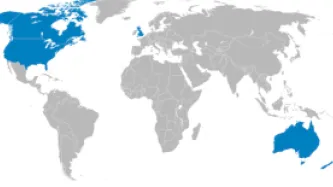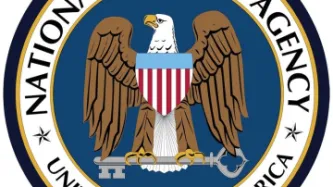Search
Content type: Examples
Ontario allocates $30 million to install new security technologies and vape detectors, expanding their surveillance apparatus whilst contributing to an overall cut in funding per student. Some of the vape detectors installed in Canadian schools include noise detectors, however there is a lack of transparency in how data is collected or used, and evidence for their efficacy in keeping students safe is lacking. Link to article: https://theconversation.com/vaping-in-schools-ontarios-30-…
Content type: Examples
The Court of Appeals for British Columbia rejected the claim made by whistleblower Ian Linkletter that linking to freely available materials from the remote proctoring company Proctorio was legitimate criticism. The company has a history of attacking those who criticise it and its products. Linklater, while working as Learning Technology Specialist at the University of British Columbia in 2020, issued a number of criticisms of its approach on Twitter, and linked to "unlisted" (public but not…
Content type: Examples
In a report, the Privacy Coimmissioner of Canada has said that online proctoring tools used to conduct remote exams fail to get sufficiently free, clear, and individual consent from students. Besides this overreach, the report identifies factors that may trigger false alerts and errors in the biometric tools incorporated into the software. The report ends by calling for reflection on how to identify uses of AI that should be prohibited.https://www.biometricupdate.com/202211/online-proctoring-…
Content type: Examples
In a sharp drop from the beginning of Canada's lockdown, after two months only one in six Canadians left their home on weekends compared to one in three at the beginning. The marketing company Environics Analytics compiled the report by analysing a database of anonymised location data from 2.3 million mobile phones and looking for people who went at least 100 metres beyond their home postal code for a minimum of 30 minutes on at least one weekend day, and used demographic information tied to…
Content type: Examples
Montreal police have launched an online system to enable residents to report suspicious activity such as group gatherings after police officers noticed significant crowding in certain areas of the city. Both the Montreal police and the province's Sureté du Québec can hand out an on-the-spot $1,000 ticket for both indoor and outdoor illegal gatherings. Travellers returning to Canada who refuse to comply with self-isolation requirements can be fined up to $200,000 and up to six months in prison.…
Content type: Examples
A day after John Tory, the mayor of the City of Toronto, told thousands of attendees at an online event hosted by TechTO that the city was gathering cellphone location data from telecoms in order to identify areas where residents were still congregating despite the city's social distancing rules, he withdrew the claim. City staff explained that an offer had been made to share anonymous cellphone location data with the City and it had been passed along to Toronto Public Health and the Emergency…
Content type: Examples
The rise of social media has also been a game changer in the tracking of benefits claimants. Back in 2009, the case of Nathalie Blanchard a woman in Quebec who had lost her disability insurance benefits for depression because she looked “too happy” on her Facebook pictures had made the news.
https://abcnews.go.com/Technology/AheadoftheCurve/woman-loses-insurance-benefits-facebook-pics/story?id=9154741
Author: Ki Mae Heussner
Publication: ABC News
Content type: Press release
Privacy International has filed a federal lawsuit seeking to compel disclosure of records relating to a 1946 surveillance agreement between the US, UK, Australia, Canada and New Zealand, known as the “Five Eyes alliance”.* We are represented by Yale Law School’s Media Freedom and Information Access Clinic (MFIA). The most recent publicly available version of the Five Eyes surveillance agreement dates from 1955. Our complaint was filed before the U.S. District Court for the District of Columbia…
Content type: Press release
Privacy International, in partnership with 30+ national human rights organisations, has today written to national intelligence oversight bodies in over 40 countries seeking information on the intelligence sharing activities of their governments.
Countries may use secret intelligence sharing arrangements to circumvent international and domestic rules on direct surveillance. These arrangements can also lead to the exchange of information that can facilitate human rights abuses,…
Content type: Long Read
Few revelations have been been as troubling for the right to privacy as uncovering the scope of the Five Eyes alliance. The intelligence club made up of Australia, Canada, New Zealand, the United Kingdom and the United States has integrated its collection efforts, staff, bases, and analysis programs. Yet the legal rulebook governing how the agencies ensure the most comprehensive joint surveillance effort in the history of mankind remains secret.
The little that is known suggests a…
Content type: News & Analysis
The central premise of international intelligence cooperation is that states are able to both access valuable partner information to protect their national security, and focus their own resources elsewhere in a mutually beneficial way. But is it really a quid-pro-quo partnership?
As the Intercept recently revealed, German policy-makers certainly have reason to doubt that this would be the case. What Germany has learned, like many others before them, is that dependence on the…
Content type: News & Analysis
The following is an excerpt from an Op-Ed written in the New Zealand Herald by Privacy International's Legal Officer Anna Crowe:
Since the release of documents by Edward Snowden nearly a year ago, New Zealand has often been seen as a passive participant in the Five Eyes intelligence-sharing alliance, not unlike a good kid hanging out with the wrong crowd.
However, Snowden documents released last month and the news that New Zealand appears to be sharing intelligence…
Content type: Long Read
The recent revelations, made possible by NSA-whistleblower Edward Snowden, of the reach and scope of global surveillance practices have prompted a fundamental re- examination of the role of intelligence services in conducting coordinated cross-border surveillance.
The Five Eyes alliance of States – comprised of the United States National Security Agency (NSA), the United Kingdom’s Government Communications Headquarters (GCHQ), Canada’s Communications Security Establishment Canada (CSEC), the…
Content type: Press release
Privacy International today has filed a complaint with the Australian Inspector-General of Intelligence Security, calling for an immediate investigation into deeply troubling reports that the Australian intelligence services offered to violate the privacy rights of millions of citizens by handing over bulk metadata to its Five Eye partners.
According to the leaked Five Eyes memo published in the Guardian on 2 December, the Australian Signals Directorate, during a meeting…
Content type: Report
The recent revelations, made possible by NSA-whistleblower Edward Snowden, of the reach and scope of global surveillance practices have prompted a fundamental re-examination of the role of intelligence services in conducting coordinated cross-border surveillance.
The Five Eyes alliance of States – comprised of the United States National Security Agency (NSA), the United Kingdom’s Government Communications Headquarters (GCHQ), Canada’s Communications Security Establishment Canada (CSEC), the…
Content type: News & Analysis
With the launch of the "Eyes Wide Open" project, Privacy International has put together a fact sheet about the secretive Five Eyes alliance. Consider this a guide to the secret surveillance alliance that has infiltrated every aspect of the modern global communications system.
Beginning in 1946, an alliance of five English-speaking countries (the US, the UK, Australia, Canada and New Zealand) developed a series of bilateral agreements over more than a decade that became known as the UKUSA…
Content type: Press release
The United Nations General Assembly should approve a new resolution and make clear that indiscriminate surveillance is never consistent with the right to privacy, five human rights organizations said in a November 21, 2013 letter to members of the United Nations General Assembly.
After heated negotiations, the draft resolution on digital privacy initiated by Brazil and Germany emerged on November 21 relatively undamaged, despite efforts by the …
Content type: Press release
General Assembly Should Pass Strong Resolution on the Right to Privacy in the Digital Age
(New York, November 21, 2013) – The United Nations General Assembly should approve a new resolution and make clear that indiscriminate surveillance is never consistent with the right to privacy, five human rights organizations said in a November 21, 2013 letter to members of the United Nations General Assembly.
After heated negotiations, the draft resolution on digital…
Content type: Press release
Civil society organisations today called upon the members of the Human Rights Council to assess whether national surveillance laws and activities are in line with their international human rights obligations.
The Snowden revelations have confirmed that governments worldwide continue to expand their spying capabilities, at home and abroad. Widespread surveillance is being conducted in violation of individuals’ rights to privacy and free expression, and is seldom regulated by strong legal…
Content type: News & Analysis
Privacy International is proud to announce our new project, Eyes Wide Open, which aims to pry open the Five Eyes arrangement and bring it under the rule of law. Read our Special Report "Eyes Wide Open" and learn more about the project below.
For almost 70 years, a secret post-war alliance of five English-speaking countries has been building a global surveillance infrastructure to “master the internet” and spy on the worlds communications. This arrangement binds together the US, UK, Canada,…
Content type: News & Analysis
The recent acquisition of Skype by Microsoft, coupled with a series of infrastructural changes, has resulted in a flurry of responses, concerns and analysis of exactly what kind of assistance Skype can provide to law enforcement agencies. Under this heightened scrutiny, Skype released a statement on their blog on 26th July, purporting to re-affirm their commitment to the privacy of their users.
Privacy International are delighted to read that Skype believes that…
Content type: News & Analysis
The Privacy Commissioner for British Columbia made a call for submissions on whether the USA PATRIOT Act could allow the U.S. authorities to gain access to Canadians' personal information, enabled through the outsourcing of Canadian public services to the United States. The Commission also called for comments on the implications for compliance with Canadian provincial privacy laws, and to see if anything could be done to eliminate or mitigate the risks.
In this submission to the BC…








